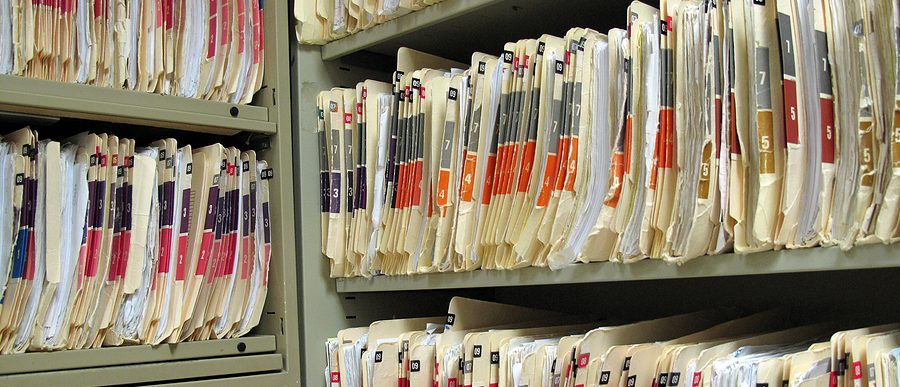Health Records Management Best Practices

In the rapidly evolving landscape of healthcare, effective health records management is essential for businesses. Managing records effectively helps your organization to provide quality patient care, ensure regulatory compliance, and streamline operations. A developed records management plan can assist you in important functions such as capturing and storing patient information, controlling access, and ensuring confidentiality. Healthcare records management plays a pivotal role in maintaining the integrity and security of medical data, helping you to build trust internally as well as in your community. Medical Waste Pros is invested in the wellbeing of your business. We can help you explore the best practices for healthcare records management that businesses can implement to enhance patient care, operational efficiency, and compliance with regulatory requirements.
Understanding Health Records Management
Medical records management involves the systematic organization, storage, and retrieval of patient information. This supports clinical and administrative processes within healthcare organizations. It encompasses various types of health records, including electronic health records (EHRs), medical charts, diagnostic reports, and billing records. Proper management throughout the lifecycle of documents is crucial to ensure data accuracy, completeness, and confidentiality.
Benefits of Effective Records Management
Effective healthcare records management offers numerous benefits for businesses, including:
- Improved patient care and outcomes through timely access to accurate medical information.
- Enhanced operational efficiency and productivity by reducing paperwork and streamlining administrative processes.
- Compliance with regulatory requirements, such as the Health Insurance Portability and Accountability Act (HIPAA), to protect patient privacy and security.
- Reduced risk of errors, omissions, and data breaches through secure storage and access controls.

Key Components of Health Records Management
Data Capture and Entry:
Accurate and timely data entry is essential for maintaining the integrity of health records. Businesses should establish standardized procedures for capturing and entering health data into electronic systems.
Storage and Organization:
Health records should be stored securely, whether in physical, cloud, or electronic format, and organized in a manner that facilitates easy retrieval and protects patient confidentiality. Indexing, labeling, and categorizing records are key practices for efficient organization.
Access and Security:
Implementing robust access controls and security measures is critical to prevent unauthorized access, theft, or tampering with health records. Businesses should establish user authentication protocols, role-based permissions, and audit trails to monitor and track access to sensitive information.
Retention and Disposal:
Businesses must comply with legal requirements for retaining and disposing of health records. Take into account factors such as patient care, legal obligations, and business needs. Secure disposal methods, such as shredding or electronic data destruction, ensure that sensitive information is properly disposed of at the end of its retention period.
Implementing an Effective Health Records Management System
To implement an effective records management system, businesses should first conduct a needs assessment to identify requirements and priorities. Our partners can assist you in defining certain laws that need to be followed, budgetary constraints, and specific business needs that you may have. It is essential to include employees in this process, as well. What are aspects of a new system that could help them be more productive? What specific needs need to be addressed for them?
Next, one of our partners can assist you in selecting appropriate records management software or systems based on budget, scalability, and functionality. Medical Waste Pros helps you to get the most affordable service in your area that is customized to your exact needs.
Once your new records management system is in place, it is important to train staff on proper procedures for records management. This includes data entry, storage, retrieval, and security protocols to ensure compliance and efficiency. Education may need to be an iterative process as culture around this system is built.

Records Management Solutions with Medical Waste Pros
Effective records management is essential for businesses to deliver quality patient care, maintain regulatory compliance, and optimize operational efficiency. By implementing best practices for records management, businesses can enhance patient outcomes, protect sensitive information, and mitigate risks associated with data breaches and non-compliance. For assistance in finding reliable health records management services and solutions, businesses can turn to Medical Waste Pros, a trusted partner in healthcare services. To get started today, fill out the form or give us a call (888) 755-6370.










